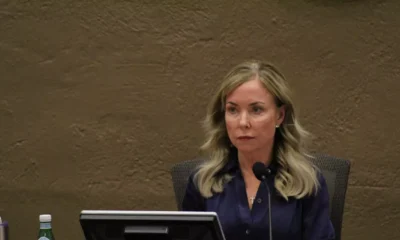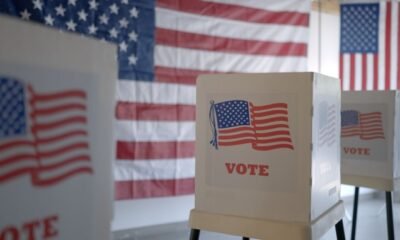Editorials & Opinions
Candidate Showdowns Reveal Leaders’ Decision-Making Skills in Voter Debates

The recent debate held on September 10 between Vice President Kamala Harris and former President Donald Trump drew an impressive live audience of 67 million viewers. This figure does not account for the millions more engaging in discussions across social media platforms, dinner tables, and news analyses. Clips, sound bites, and memes began circulating even before the debate concluded, lending themselves to both support and criticism of the candidates.
While debates may not significantly shift the opinions of committed voters, they can serve as pivotal moments for undecided participants in the electoral process. This event also reinforces the sway of endorsements as both play a role in energizing voters who could be on the fence regarding turnout.
Campaign responses to debate performances often exert greater influence than public reaction. Candidates work diligently to manage any fallout by clarifying their points and establishing a consistent message. Although the effects of a strong or weak debate performance may evolve slowly, they can become critical in closely contested elections, potentially influencing voter perception and outcomes.
Notably, President Joe Biden’s underwhelming performance against Trump last July had lasting implications, exacerbating concerns over his age and capacity for leadership. Despite pressures and demands of governance, elected officials generally control their media narratives and schedule, choosing when and to whom they will communicate their messages.
Debates provide a unique opportunity for unscripted interactions, challenging candidates to field questions from journalists and the public in real time. These moments generate insights into candidates’ thought processes and decision-making abilities, especially regarding future crises.
As the current election cycle nears its conclusion, the likelihood of additional presidential debates appears slim. There remains a desire for discussions focused on urgent topics such as foreign policy and immigration, yet many local debates have already occurred or are scheduled.
In Arizona, the Arizona Media Association has organized numerous candidate forums for contentious congressional and legislative races. In Congressional District 2, Democratic candidate Jonathan Nez participated in a one-on-one format after incumbent Republican U.S. Rep Eli Crane declined to engage.
Voters should take note of candidates who choose to skip debates. However, the absence of a candidate from a debate may carry different implications based on their standing in the polls. Incumbent candidates likely have more to lose or gain from participation.
Upcoming on October 5, the Citizens Water Advocacy Group will facilitate a critical forum focused on water issues in Legislative District 1, which includes Yavapai County and parts of Coconino County. The event will feature Republican Mark Finchem and Democrat Mike Fogel, alongside incumbent Republican Rep. Selina Bliss and challengers Jay Ruby and Marcia Smith. Notably, incumbent Republican Quang Nguyen has announced a scheduling conflict and will not attend.
The candidates will receive advance questions to help prepare for discussions surrounding the complex topic of water, which many may find challenging to navigate effectively without prior knowledge.
For those still undecided about candidates, watching debates could provide valuable perspectives on their reasoning and problem-solving approaches. Voter registration for the general election on Tuesday, November 5, closes on Monday, October 7, with early ballots expected to be distributed starting October 9.
In future election cycles, it would be beneficial for nonpartisan organizations to facilitate debates across all levels of government. Planning should begin now to ensure candidates have ample opportunity to engage with voters in the lead-up to the 2026 elections.


















